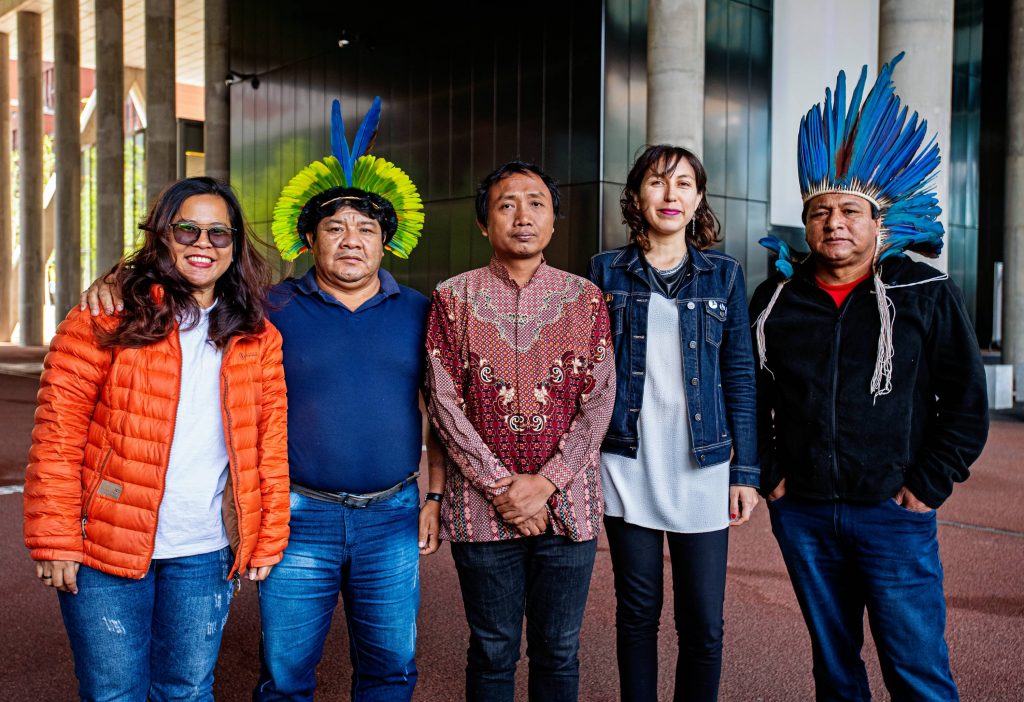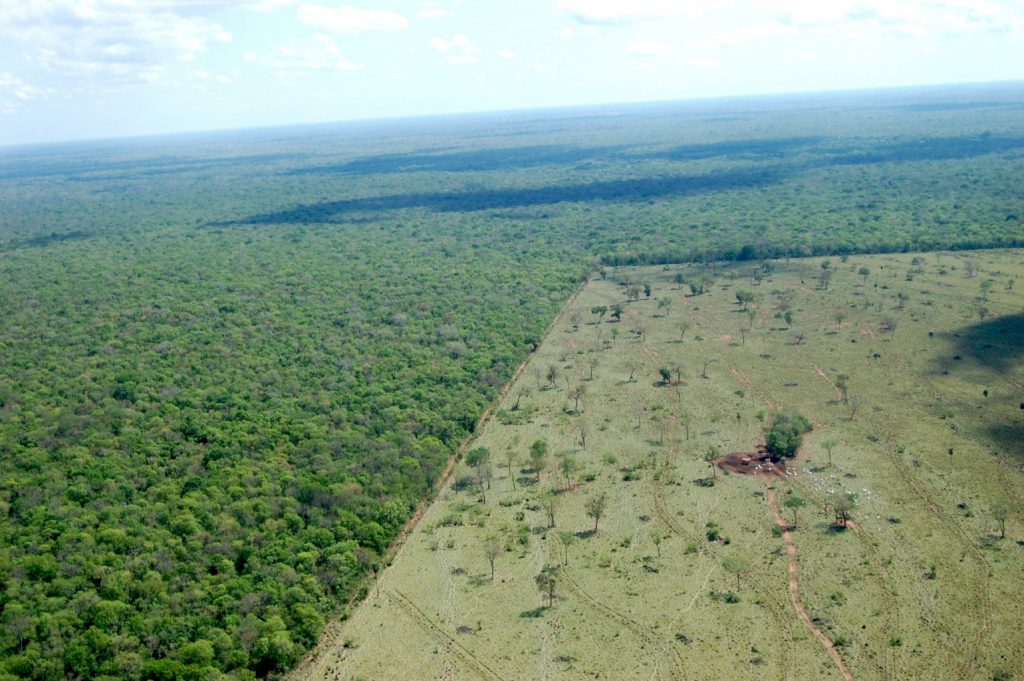In July 2019, the European Commission published a communication to ‘step up EU action to protect and restore the world’s forests’. This is in line with the EU objective to halt global forest loss by 2030. The communication has five priorities, the first of which resulted in a proposal for an EU Regulation on deforestation-free products. The Regulation aims to reduce EU consumption’s land footprint and ensure deforestation-free supply chains. Another priority concerns cooperation and partnerships with forest countries to reduce pressure on forests and ‘deforest-proof’ EU development cooperation.
Friends of the Earth Europe, Friends of the Earth Netherlands/Milieudefensie and Fern invited environmental defenders from tropical forest countries to meet decision makers in Brussels and the Netherlands. We want to ensure southern perspectives are included in the EU Regulation decision making process and the Commission’s approach regarding working in partnership with forest countries. Here we introduce our guests from Colombia, Indonesia and Cameroon and explain the reasons why they are visiting Europe as part of their efforts to stop deforestation and related human rights violations in their countries.

Tatiana Rodríguez Maldonado is the General Coordinator at Censat Agua Viva in Colombia
“We work to support local communities and organizations to protect their territories. A key achievement of Censat regarding the protection of forests has been that more Indigenous and local communities are identifying the risks and threats of conservation projects. They recognize that market strategies are false solutions that threaten their territories and that do not help solve the environmental and climate crises. In recent years, we have had more and more requests from Indigenous communities to provide advice and support. We contribute to their understanding of the risks and provide them with tools to defend their territories.
I have come to Europe to learn more about northern countries’ perspectives of deforestation. Europe has a big share in global deforestation, due to its high levels of consumption and the excessive demand for natural goods from the south.
In addition, I want to inform you about our own perspective, based on a critical analysis of how deforestation should be addressed in a much more comprehensive manner. We want to ensure that Europe’s actions include recognition and support for the autonomous territorial management proposals of Indigenous and local communities, who have ensured that the forests remain standing. Instead of continuing to focus resources solely on supporting official proposals from the Colombian State.”
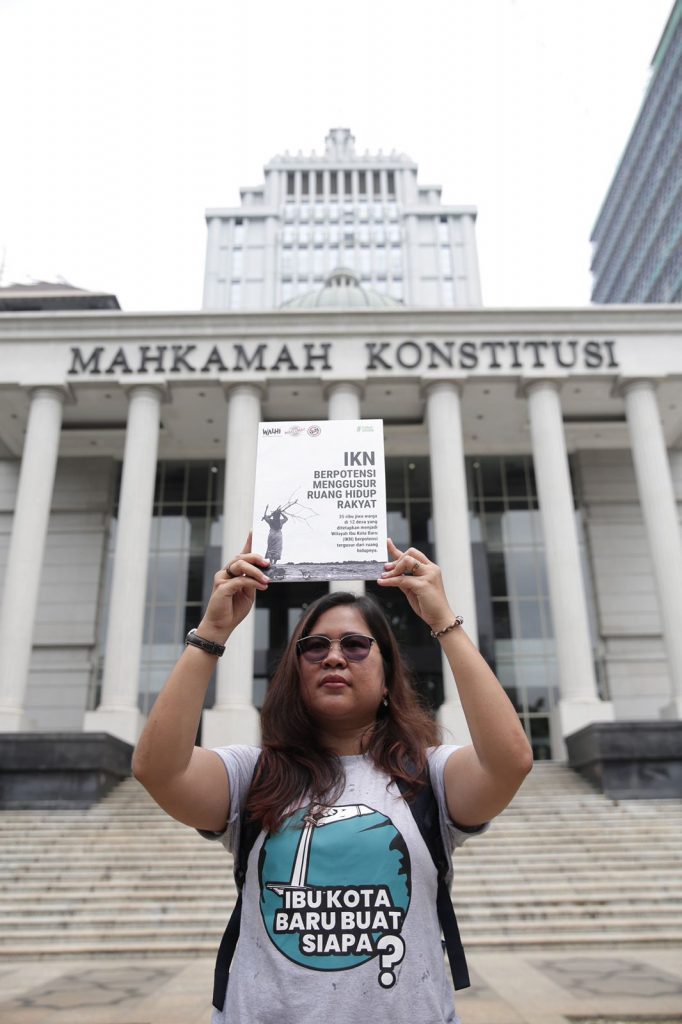
Uli Arta Siagian is National Forest and Plantation Campaigner at WALHI in Indonesia.
“Our priority is to ensure Indonesia’s remaining forests can survive the expansion of oil palm, mining and pulp and paper plantations. This is an urgent time to evaluate the permits of these sectors and stop those that cause deforestation and human rights violations. We are working hard to improve the laws in Indonesia. Currently these legitimize the destruction of Indonesia’s forests. Together with our coalition, we call upon the Indonesian government to put the palm oil moratorium back in place, as well as implement the moratorium on permits in forest areas. In Europe, I want to convince decision makers that they need to improve the proposal for an anti-deforestation regulation to protect the world’s forests, especially Indonesia. We see that we need to correct our consumption patterns, including those in developed countries. Gluttony and boundless consumption, harms the earth’s ability to survive and recover. As a result, forest fires, human rights violations and illegal deforestation have become daily practices in Indonesia. The criminalization of human rights defenders and the environment is increasing massively. The state fails to ensure the safety of those who fight to defend their lands and territories.
The anti-deforestation regulation needs to ensure we have access to justice if companies or financiers in Europe contribute to deforestation and human rights abuses in our country. We have a clear demand that financiers are included in the scope of the regulation. Follow the money! If the financial sector is not regulated, deforestation and human rights violations will not stop.”
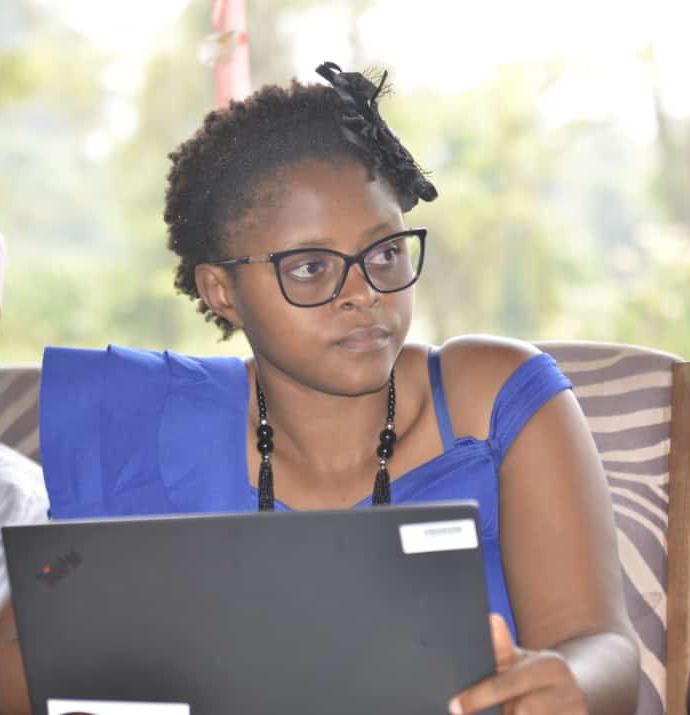
Stella Tchoukep is a lawyer at the Centre pour l’ Environnement et le Développement (CED) in Cameroon.
“In my country, Cameroon, communities and Indigenous Peoples are suffering greatly from the loss of forest cover and associated ecosystems. What are the mechanisms of the European anti-deforestation regulation that enable people affected by deforestation and related human rights violations to make their voices heard?
We urgently need effective redress mechanisms in the event of a breach of the regulation. Currently, agro-industrial and forestry companies can do whatever they want without consequences. This power imbalance needs to be urgently corrected.
The rights of local communities and Indigenous Peoples to their lands and resources must be respected. We cannot allow further criminalization of environmental, human rights defenders, including people from agro-industrial enterprises harassing women in plantation areas, and violating their right to life and security of property and persons.”

Samuel Nguiffo is Secretary General at Centre pour l ‘Environnement et le Développement (CED) in Cameroon.
“I have been working for decades to stop harmful investments that destroy the forests in the Congo Basin and violate human rights. I am in Europe to speak with decision makers about the impact of EU action against deforestation. I want to stress that the EU should initiate dialogues with and support for forest countries to improve their internal systems and involve civil society and communities. The many smallholder farmers in Cameroon should not be harmed by the regulations’ requirements. Smallholders should be part of the deal, so that they are able to supply their products to the EU market. The underlying drivers of deforestation such as bad governance and lack of access to land for communities and Indigenous Peoples should be central in all measures.
Furthermore, EU Member States have ratified international agreements on human rights and we strongly expect they are fully included in the regulation. Failing to do so, would be highly inconsistent and unreliable.
I have also come to Europe to counter the current industry lobby. They want to provide a backdoor to voluntary certification, but decades of experience show that voluntary certification does not work to prevent deforestation and human rights violations. It greenwashes bad practices in industrial concessions. Also, the industry lobby wants to get rid of the obligation to indicate the origin of products. But we need that in the law to ensure leakage does not happen and there is no other way to know if a product is causing deforestation and rights violations.”
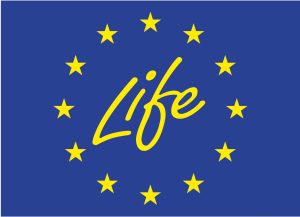
Friends of the Earth Europe gratefully acknowledges financial assistance from the European Commision (LIFE Programme). Views and opinions expressed are however those of the author(s) only and do not necessarily reflect those of the European Union or CINEA. Neither the European Union nor CINEA can be held responsible for them.


